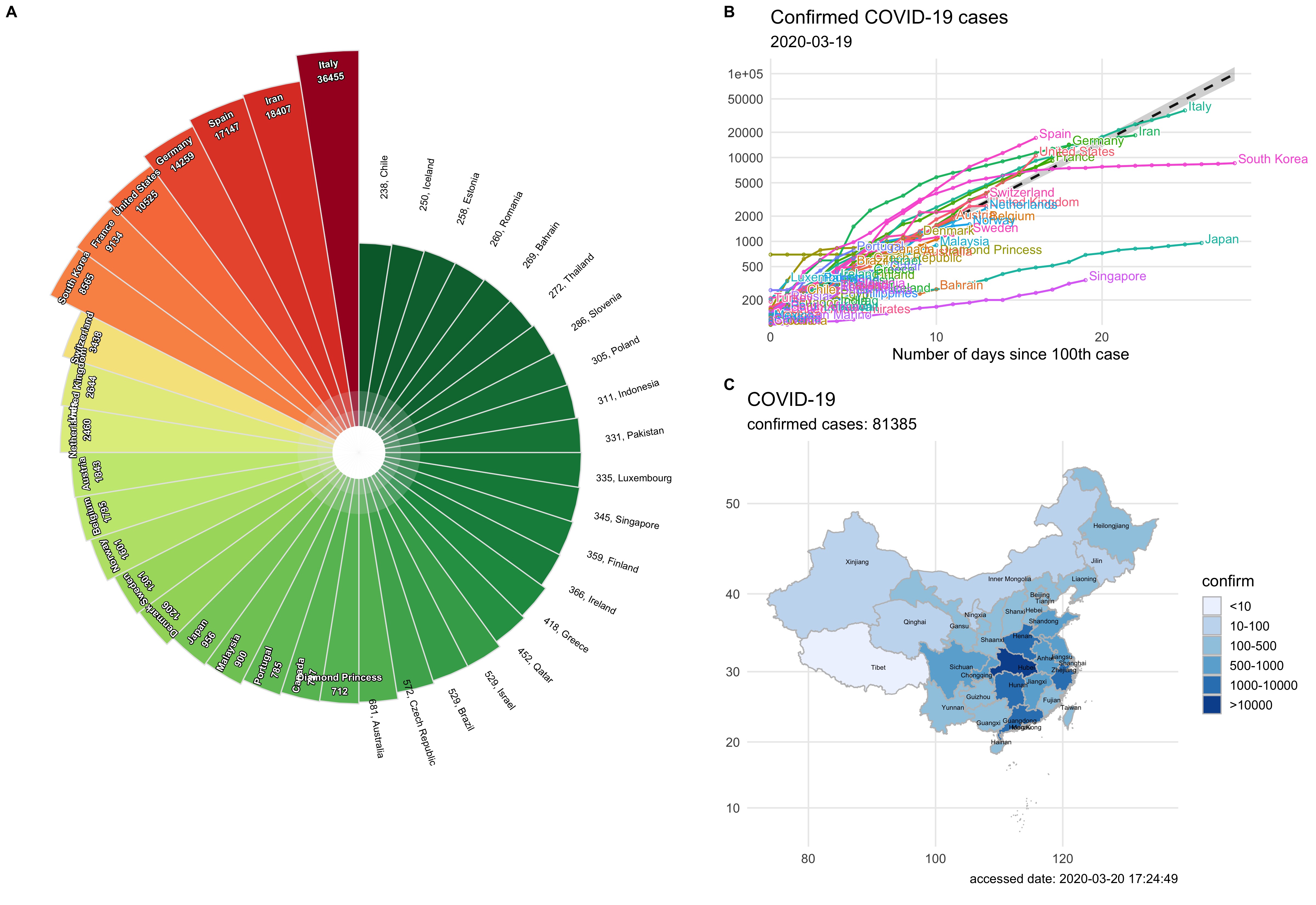Please visit https://github.com/YuLab-SMU/nCov2019 for an up-to-date version.
This package is one of the earliest R packages that designed to query COVID data. It is available since Jan. 2020, at the time there were few data resources available (see our blog post (in Chinese) (Feb. 03, 2020) and another blog post by third party (in English) (Feb. 11, 2020)).
-
Wuhan-2019-nCoV GitHub repository.
- This data source contains detailed city level data in China, and country level data in worldwide.
-
National Health Commission of the People’s Republic of China
- This data source contains province level data in China.
-
- We collect historical city level data in China from this source.
-
-
We collect historical province level data for oversea countries form this source. (Start from 2020-03-15)
The user can obtain the historical provincial data in
China,South Korea,United States,Japan,Iran,Italy,GermanyandUnited Kingdomnow.For example, the below will return the historical data for Italy.
library(nCov2019) nCov2019_set_country(country = 'Italy') x['province'] # this will return Italy data only.
-
For more details see our vignette, Preprint, and Shiny app.
- Guangchuang YU (package creator and maintainer)
- School of Basic Medical Sciences, Southern Medical University
- https://guangchuangyu.github.io
- Xijin Ge (Shiny app)
- Department of Mathematics and Statistics, South Dakota State University
- https://www.sdstate.edu/directory/xijin-ge
- Tianzhi Wu, Erqiang Hu and Patrick Tung (contributors)
If you use nCov2019, please cite the following paper:
Wu T, Hu E, Ge X*, Yu G*. 2021. nCov2019: an R package for studying the COVID-19 coronavirus pandemic. PeerJ 9:e11421 https://doi.org/10.7717/peerj.11421
Get the development version from github:
## install.packages("remotes")
remotes::install_github("GuangchuangYu/nCov2019")get_nCov2019()to query online latest informationload_nCov2019()to get historical datanCov2019_set_country()to set country optionssummaryand[to access dataplotto present data on mapdashboard()to open Shiny app dashboard
Run the script example.R in R using source("example.R"), will produce the following figure:
- online vignette: nCov2019 for studying COVID-19 coronavirus outbreak
- An R Package to Explore the Novel Coronavirus
- 检索疫情数据的R包来了
- 各省市的疫情历史数据来了!
- 一次搞定所有的疫情地图
- nCov2019:历史数据实现自动更新
- nCov2019英文版,歪果仁也能用这次武汉疫情的数据了
- 新冠全球历史数据来了
- 当病毒R包nCov-2019遇上动图gganimate
- 爆款风玫瑰图:新冠肺炎全球疫情形势
- 螺旋的疫情图
- 欧洲很方,一不小心都要「意大利」了

